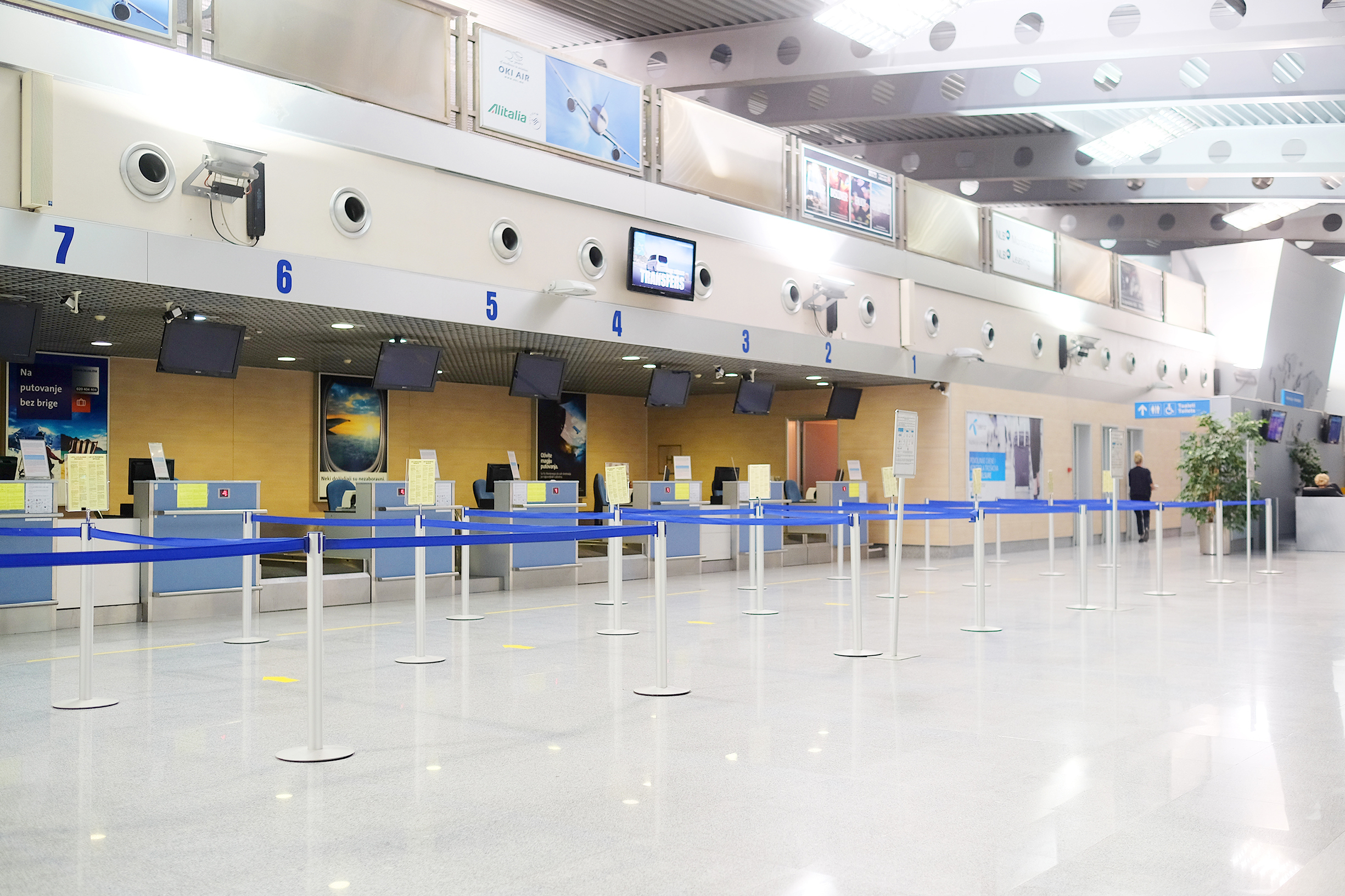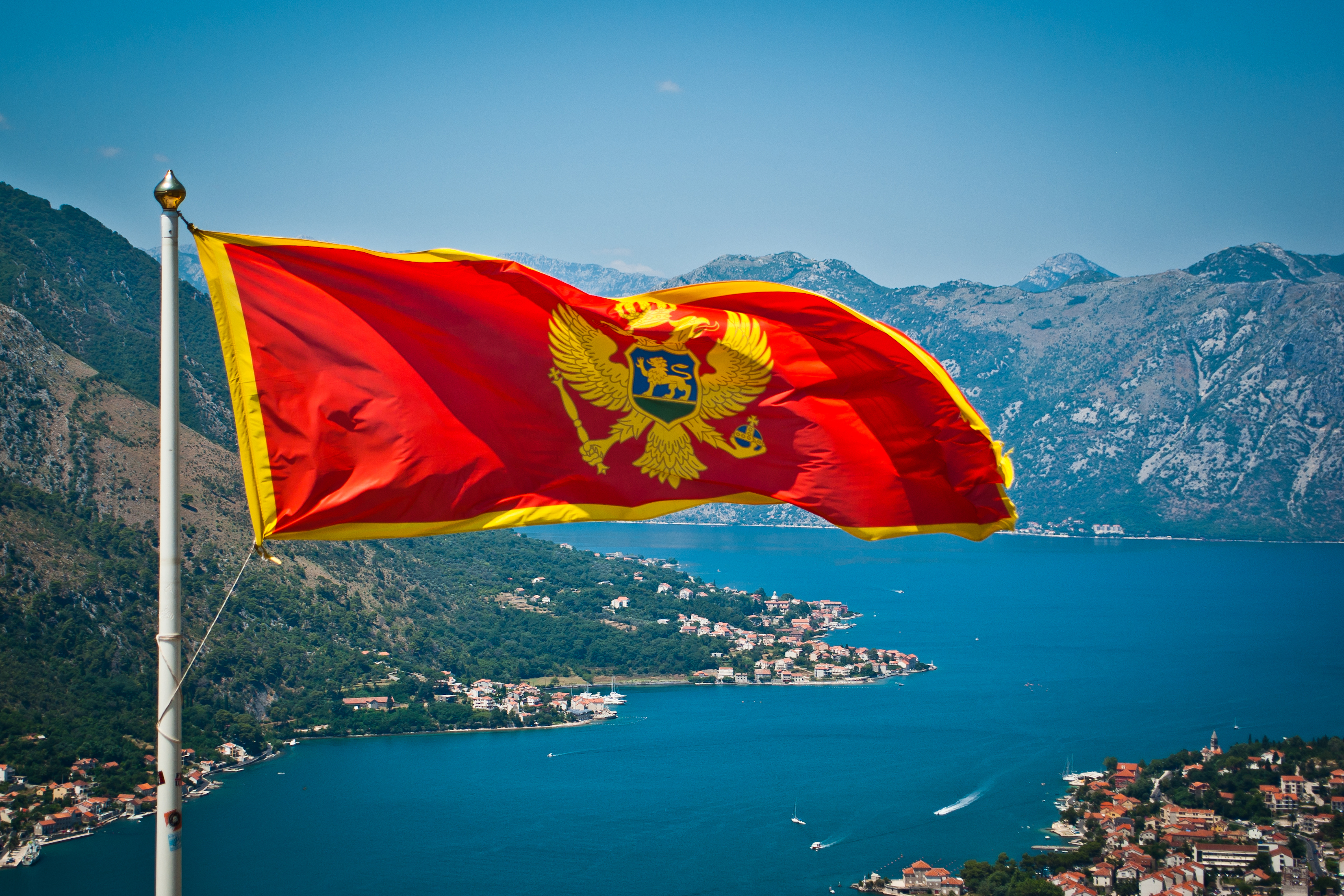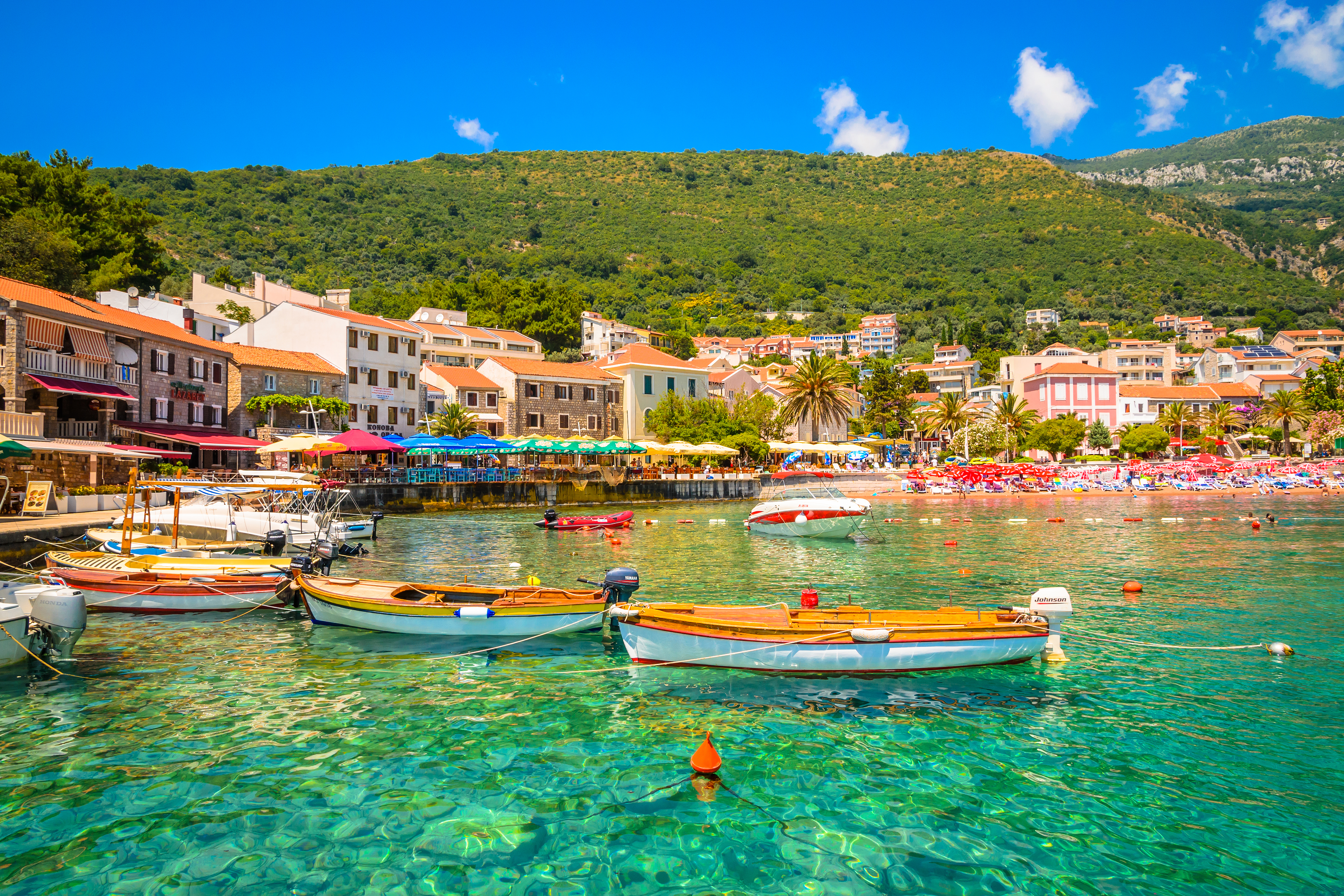Immigration to Montenegro attracts residents of the CIS countries with comfortable living conditions, favorable climate and great prospects. The country is a candidate for accession to the European Union, with integration expected by 2025. One can move to Montenegro for permanent residence on the basis of employment, family reunification, purchase of real estate or starting a business. In this article, we will tell about 7 options for moving and peculiarities of life in the country.
Pros and Cons of immigrating to Montenegro
The country is underrated in terms of immigration. The state is expected to join the EU in 4 years, after which, the number of those wishing to immigrate will increase dramatically, and the procedure will become more complicated. At the moment, residence permit, permanent residence permit and citizenship is much faster and easier to get, compared to the countries members of the European Union. The advantages of immigration to Montenegro permanently are as follows:
- low taxation – the income tax is 9-11%;
- security – according to Numbeo, the country ranks 56th in the world’s security ranking;
- prospects – Montenegro is expected to join the EU, after which its citizens will be able to enjoy the benefits of the European passport;
- outdoor recreation – without leaving the country, you can spend your vacation in the mountains, by the sea or in one of the prestigious resorts;
- local mentality – Montenegrins are sociable and friendly, there is no prejudice against any nationality in the country.
The disadvantages of living in Montenegro include:
- passion for smoking – Montenegrins smoke everywhere and a lot;
- problems with employment – the country has a high unemployment rate (almost 24%);
- relatively low wages – the minimum wage is only 331 EUR before taxes.
Terms for obtaining a permanent residence permit
Permanent residence status can be granted to an immigrant who has been residing in Montenegro for 5 years, holding a residence permit. During this period, it is allowed to be absent from the country for not more than 10 months in total or up to 6 months in a row. It is also required to meet the following requirements:
- regular income;
- purchased or rented housing in Montenegro;
- basic knowledge of Montenegrin language;
- no criminal record for a period of more than 6 months in the home country or in Montenegro.
If a foreigner poses a threat to the safety or health of local residents, he or she will be denied a permanent residence permit. Residence permits issued on the basis of education qualify for half of the credit: If a student has been in the country for 4 years under the corresponding residence permit, 2 years will be counted when applying for a permanent residence permit. A residence permit for seasonal employment does not count at all.
The documents
To apply for a permanent residence permit, you will need a standard set of documents:
- valid international passport;
- residence permit card;
- medical insurance for the entire period of stay in the country;
- document confirming regular income (certificate of employment, for example);
- rental contract or contract of purchase of housing;
- certificate of medical examination;
- certificate of no criminal record.
A step by-step guide on moving to Montenegro permanently
- Appropriate ground choice and preparation – buying/renting a home, finding a job.
- Getting an entry visa and registration.
- Obtaining residence permit.
- Requesting permanent residence permit after 5 years of residence in the country.
- Applying for citizenship after 5 years.
This procedure is standard for most methods of immigration. It may change when you get married or relocate through an investment.
Entering Montenegro
According to the law «On Foreigners», no entry is permitted for persons, who:
- use false or invalid documents;
- do not have a valid visa (if no visa-free visit is allowed) or with a forged one;
- have no proof of the purpose of their visit to the country;
- have already been in Montenegro for 90 days within the last 6 months;
- do not have sufficient funds to stay in the country and return to their home country.

Due to the COVID-19 pandemic, entry into the country is only possible with one of the following documents in English:
- certificate of complete vaccination, the second dose must be received at least 14 days before entry;
- a negative PCR test done no more than 72 hours ago;
- a certificate of a previous illness;
- a negative rapid test performed no more than 48 hours ago.
Before traveling to the country, it is necessary to check the current rules on the official sources.
Processing a visa
In order to reside in Montenegro, it is necessary to apply for visa type D, which allows one or more trips to the country for a period of 90 to 180 days. The application and the required documents should be submitted in person at the consular department of the embassy of Montenegro. Applicants for the relocation need to confirm they have accommodation in the country of arrival and financial security, that is 20 euros per each day of stay. The application is considered about 10-14 days. After crossing the border, the immigrant must register within 24 hours at the police station or tourist organization.
Residence permit
A residence permit can be issued to a foreigner on the following grounds:
- Employment. There is a separate type of residence permit for work and residence in Montenegro. It is issued on the basis of a written invitation from the employer for 12 months and can be renewed.
- Education. A residence permit is issued on the basis of an enrollment document for a student in an educational institution in Montenegro.
- Real estate purchase. If the cost of the object is up to 250,000 EUR, a foreigner is issued a residence permit for 1 year with the right to extend as long as the house, apartment or commercial premises are owned by the applicant. This is one of the most popular options for immigration to Montenegro among retirees.
- Opening a business. By starting a company from scratch and appointing being appointed as its director, the immigrant receives the right to a residence permit. It is not necessary to create jobs and contribute to the development of the economy of the country, it is enough to pay taxes on time.
- Family reunification. Temporary and permanent residents, with the exception of seasonal workers, can invite their spouse and children and they receive a residence permit for family reunification.
- Buying a boat. The government allows foreigners, whose yachts spend in Montenegrin ports more than 90 days annually, to immigrate. This type of residence permit is issued on the basis of an agreement with the marina and allows you to stay in the country for up to 9 months a year.
- Refugee status. Persons who suffered from war, persecution, organized crime or violence in their homeland may apply to the Government of Montenegro for help. If the fact of threat is confirmed, the refugee will be given a residence permit with the right to work and receive financial support from the state.
The application for a residence permit is submitted to the department of the Ministry of Internal Affairs in the place of residence, where you submit two fingerprints, a photo and a digitized signature. The processing takes about 40 days.
A permanent resident card of Montenegro
After 5 years of living in the country on the basis of a residence permit, the immigrant is entitled to apply for permanent resident status. The application must be submitted in person at the office of the Ministry of the Interior in the place of residence. The decision is made within 6 months of submitting the documents. If the applicant meets all the conditions of the law, he/she receives a permanent residence card from the Ministry of Interior and is granted the appropriate status.
The validity period of the boravak (permanent residence card) is 5 years, after which it can be extended or the applicant can apply for citizenship. Permanent resident status holders are entitled to social benefits, car purchase and reissuance, free medical care and other benefits. If an immigrant engages in illegal activities on the territory of the country or leaves Montenegro for more than a year, the status is revoked.
Refusal
Refusal to grant a permanent residence permit can occur in the following cases:
- criminal record;
- violation of Montenegro law;
- no means of living;
- incomplete package of documents;
- incorrectly filled out or forged documents;
- stay of the applicant outside the state for a longer period than permitted;
- lack of knowledge of the language;
- no housing;
- threat to the safety and health of the population on the part of the immigrant.
The decision of the immigration service can be appealed in court. The application must be filed within a week of the decision.
The full status of a Montenegrin citizen
It is possible to obtain citizenship after 5 years of permanent residence in the country. According to the simplified procedure, the passport can be obtained by investors (investments from 350 000 EUR) and spouses of Montenegrins (5 years after moving to the country, if at the time of submitting the application length of marriage is 3 years and more). The applicant must have a place to live and a source of permanent income, to pay taxes on time and have no criminal record for more than one year in any country in the world.
In order to apply, the candidate must go to the office of the Ministry of Internal Affairs in the place of residence, submit two fingerprints and digital signature. Also, renunciation of previous citizenship is required, but this condition does not apply to investors. The processing takes about 12 months, and if the decision is positive, the immigrant receives a passport that is valid for 10 years and will be replaced in the future.
After the calculation, you will know how much money you need to move to Montenegro.
Montenegro: life in the country

Jobs and salaries
Montenegro has a fairly high unemployment rate – 23.81% as of November 30, 2021 according to the state employment service. Therefore, it is difficult to find a job, but possible, especially if you come to the country as a tourist to find a job: many organizations do not publish ads on the Internet, but post them in local newspapers, on public bulletin boards. The minimum wage before taxes is 331 EUR, the average wage is about 750 EUR. The list of professions available to immigrants includes specialists in the IT sector, doctors, teachers, translators. Also in demand are domestic helpers, nannies, construction workers and engineers.
Prices
Food prices in the country are low and stable, as everything is produced mainly by local companies. A liter of milk here costs 0,6 EUR, a kilo of pork or beef – 4-6 EUR, a kilo of sugar – 0,7 EUR. A portion of goulash in a cafe or restaurant costs 3 EUR, and mutton with potatoes in Montenegrin style – 16 EUR. The communication and the Internet in Montenegro are considered expensive: from 10 to 15 EUR for 10 Gb of the Internet. The price for 1 km by cab is 0,5-1 EUR, a trip by public transport costs 3 EUR.
Language and mindset
A distinctive feature of the mentality of the population is the principle of «polako», which translates as «calmly» or «slowly». Being late in Montenegro is typical. For example, the plumber can come in a week without tools, examine the problem and say that he will be back in a couple of days. Locals talk a lot and loudly, they are friendly and love children.
Climate and Transport
The country has a mild Mediterranean climate: in the coastal areas in summer the temperature does not exceed +25 ° C, in winter it does not fall below +3 ° C. In the mountains, winters are cooler: down to -10°C. The presence of beaches and mountains gives residents a variety of recreational options. The country has a well-developed transport: there are two airports, high-quality road surface, bus routes cover all settlements. Given the favorable geographical location, Montenegrins often go shopping to neighboring countries – Serbia or Croatia.
Accommodation
The cost of renting housing depends on the city and proximity to the sea. For example, in Budva one-bedroom apartment will cost 250 EUR per month, two-bedroom – 300-350. In Becici, housing with two rooms costs EUR 180-250 per month. A house with two bedrooms in Herceg Novi costs 900 EUR. As for the purchase, a one-bedroom studio in Budva costs about 50,000 EUR, a house of 250-290 m2 is about EUR 180-320 000, and a 200 m2 five minutes from the sea will cost 35,000 EUR.
Medicine
Locals prefer to visit doctors in neighboring countries, preferably Serbia. There are few specialists of narrow specialty, working with serious illnesses. The main medicine is antibiotics, and Montenegrins prefer not to go to the hospital for bruises and colds. Doctors often give wrong diagnoses, asthma can be confused with acclimatization.
Education
Feedback from those who have already moved to the Balkan country testifies that the quality of education in the country is at an average level. There are public and private schools: in the first, education is free, but students receive only basic knowledge, in private the cost of attendance is several hundred euros per month. There are three universities in Montenegro, and they are all located in Podgorica – other cities have branches. However, applicants prefer to enroll at universities in neighboring countries. If parents have Montenegrin citizenship or permanent residence permit, their children can apply for European education and choose the country of study.
Moving to Montenegro for permanent residence is easier than in other European countries, if you prepare thoroughly and comply with all legal requirements. After joining the EU, the number of those wishing to immigrate will increase, real estate will become more expensive, and the procedure will be more complicated. Now you can get a passport for a relatively small investment, and after a few years to enjoy all the benefits of EU citizenship: visa-free travel to most countries, good health services, the opportunity to obtain a prestigious degree. When moving, it is worth contacting lawyers who can help you avoid difficulties and emigrate with minimal risk of rejection.















